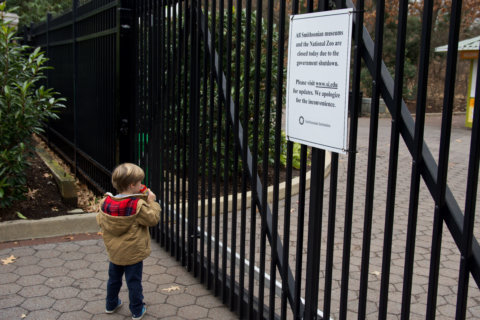WASHINGTON — The 2.1 percent pay raise that civilian federal workers were scheduled to get when they returned from the holidays didn’t happen.
Instead, federal employees are beginning 2019 making the same salaries they were making the last time they were in the office. It’s because last Friday President Trump signed an executive order freezing federal salaries.
It wasn’t entirely unexpected, nor is it unprecedented.
“Going back to the early part of 2018, the administration made clear in their budget that they were thinking about freezing the pay … of federal workers,” said Tony Reardon, who heads the National Treasury Employees Union. His group represents 150,000 federal employees across several agencies.
In a statement, the Trump administration said the pay freeze was enacted in order to limit the impact and “long-term fixed costs” that an across-the-board pay raise would have on the federal budget. But Reardon called it a “slap in the face” and said it comes at the same time that “all we hear out of the administration is how fantastically well the economy is doing right now.” He also pointed out that the pay freeze comes at a time when private sector wages are growing.
However, the administration, in announcing the pay freeze, specifically said the move would “not materially affect our ability to attract and retain a well-qualified federal workforce.”
But the timing of the freeze, when employees at several agencies are either on furlough or working on the premise that they’ll be paid whenever Congress and the president approve a budget, doesn’t help.
“To throw this particular pay freeze in 2019 on federal employees while they’re in the middle of a government shutdown is nothing short of dumping a whole truckload of salt into wounds that already exist,” said Reardon.
Federal salaries were also frozen in 2011, 2012 and 2013 under the Obama administration.
Congress could also still vote to give federal workers a raise — something the Senate did last month in a spending plan that wasn’t taken up in the House. Lawmakers from Maryland and Virginia are both vowing to keep trying as negotiations continue.







